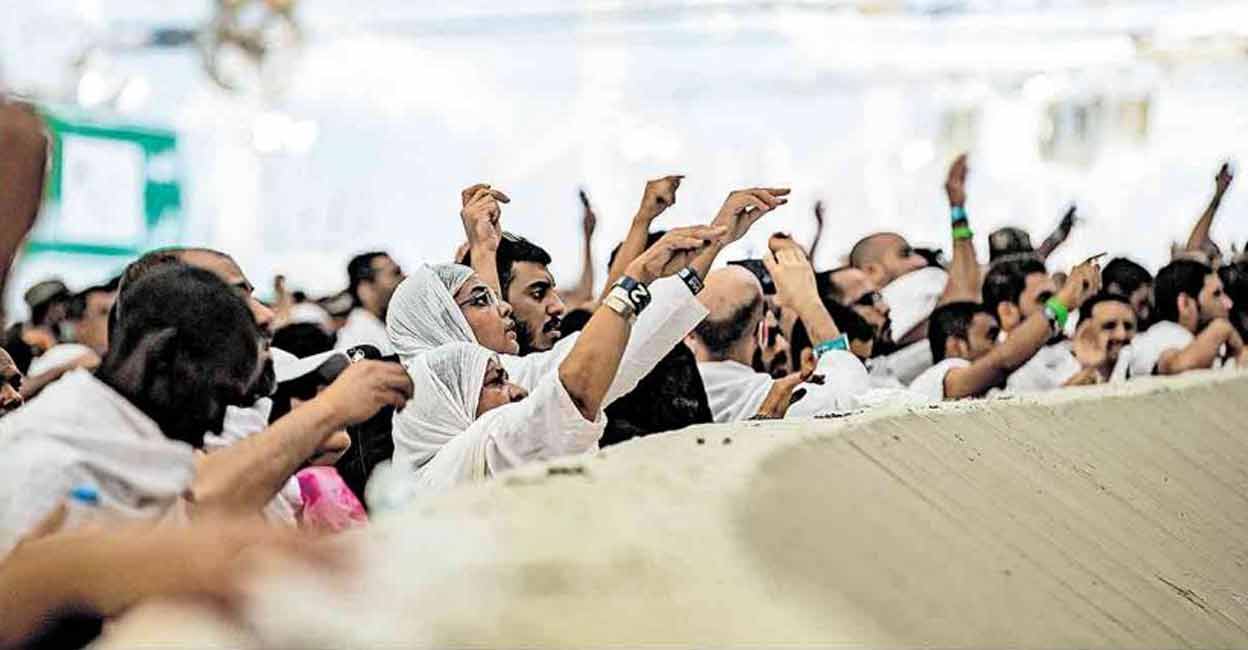Hajj pilgrimage: 3 embarkation points in Kerala, ministry says package costs reduced by Rs 50k

Mail This Article
The Ministry of Minority Affairs has announced a revised Hajj policy and declared 25 embarkation points for this year's pilgrimage, of which three are in Kerala.
Kochi, Kozhikode and Kannur are the embarkation points in the state. The other embarkation points in the country are Srinagar, Ranchi, Gaya, Guwahati, Indore, Bhopal, Mangalore, Goa, Aurangabad, Varanasi, Jaipur, Nagpur, Delhi, Mumbai, Kolkata, Bangalore, Hyderabad, Chennai, Ahmedabad, Lucknow, Vijayawada and Agartala.
Declaring that the application forms will be free of cost this year, the ministry said it aims to offer financial relief for the pilgrims.
Hajj package costs have been reduced by approximately Rs 50,000 as the money that was deposited with the Hajj Committee for foreign exchange and items such as umbrella, bags and bed sheets would not be charged and these things can be arranged by the pilgrims themselves, sources said.
According to the latest Hajj policy, the VIP quota has been discontinued. Moreover, 80% of the total quota will be allocated to the Hajj Committee of India and the rest to private operators.
"Those who have performed Hajj earlier through Hajj Committee of India will not be eligible to apply. In the case of 'Mehram' (companion) for lady pilgrims and of companions accompanying pilgrims over 70 years of age, repeaters will be allowed on payment of additional charges as applicable from time to time," the policy stated.
Woman pilgrims and those over 70 years utilising the service of a repeater as "Mehram" must give a solemn declaration and undertaking to the effect that no first time "Mehram" is available in the family.
The Hajj application forms can be obtained from state and Union Territory Hajj committees free of cost or can be downloaded from the website of the Hajj Committee of India at Hajjcommittee.gov.in or through the android mobile application "Hajj COMMITTEE OF INDIA" available on play store.
According to the new Hajj policy, women above 45 years of age, who wish to go for Hajj but do not have a male "Mehram" and their school of thought (Maslak) permits are allowed to travel in groups of four or more.
Single women may apply
Subject to the terms of Saudi Arabia, a single women may also apply, and the Hajj Committee of India, may form a grouping with women who apply under the category, the policy stated.
The Consulate General of India in Jeddah will also facilitate separate living arrangements for women traveling alone for the pilgrimage, the policy said.
It said a maximum number of four applicants comprising the family members or near relatives can apply in a single cover.

While allotting seats of each state, priority would be given to the over 70 age category, women and differently-abled.
Distribution of quota
The distribution of the different states' and union territories' quota will proceed as in the current policy through draw of lots.
The health certificate to be issued to the pilgrims by a medical officer will have information related to mandatory vaccinations and Covid vaccination.
The digital medical health certificate will be issued to the selected Hajj pilgrim in collaboration with Ministry of Health and Family Welfare (MoHFW).
All selected pilgrims more than two years of age are required to possess a certificate of inoculation with a single dose of the cerebrospinal meningitis vaccine.
The pilgrims may be allowed to get health verification and a RTPCR test from their district health units. The test shall be preferably done through government Laboratories including facilities available in Government of India Hospitals, Hospitals of Railways, ESIC hospitals etc, according to the policy.
The pilgrims will be given a choice between the embarkation point of the area and the nearest economical embarkation point as per the difference in air travel costs from the previous year.
Also, this time all states and union territories (UTs) will be allowed to send an officer at the director level in the state or UT service and an officer of state or UT Hajj committees, for looking after the pilgrims of their states and UTs.
(With PTI inputs)

